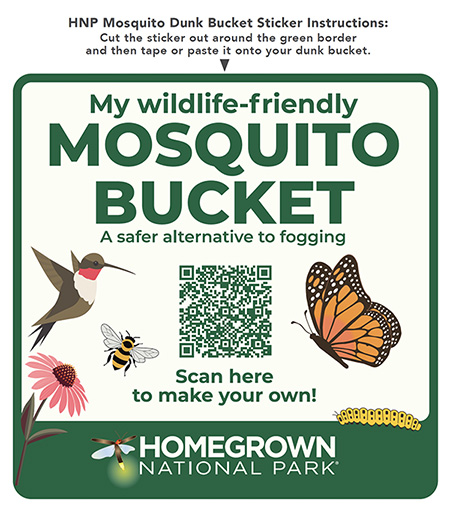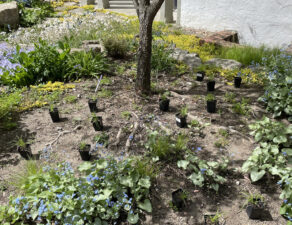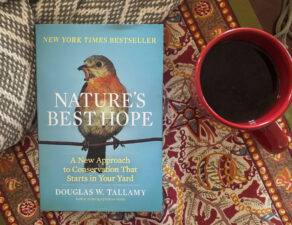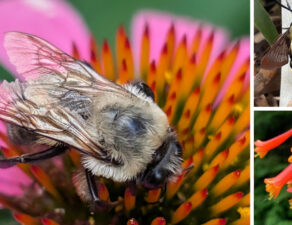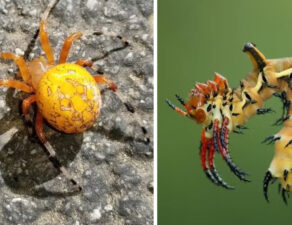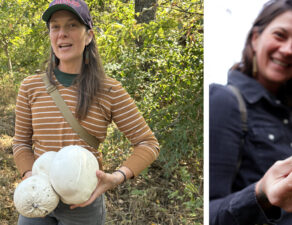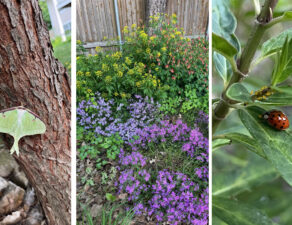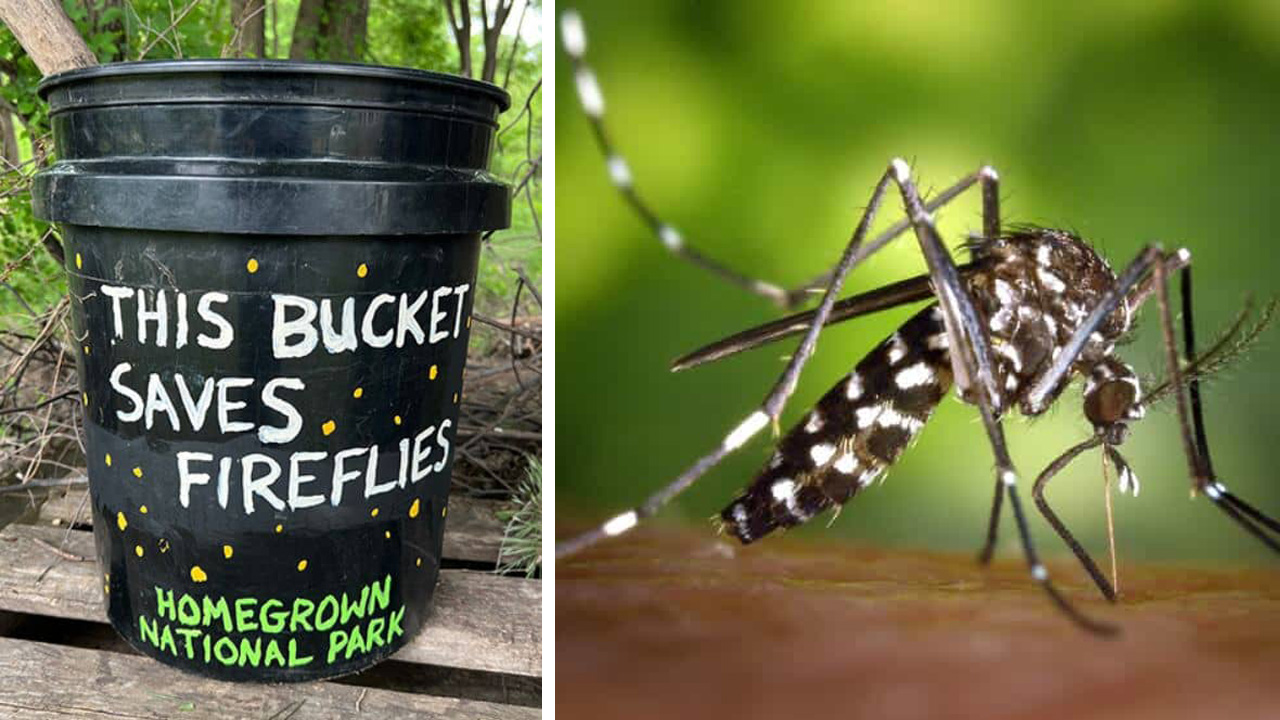
Photo credits: Above left: Homegrown National Park; Above right: Mosquito Hero
Summer is soaring into the Kansas City region, as are the temperatures, humidity, and …… the mosquito population! But our community of compassionate gardeners have support from a mosquito assassin (and a hint: their name isn’t Joe, they’re not an Orkin man, and they don’t need a fogger). There’s a real buzz going around within the community of Doug Tallamy aficionados about his Homegrown National Park’s #MosquitoBucketChallenge. With a suite of clever nicknames like “Bucket of Doom,” this analog approach to managing summer’s most notorious bloodsuckers employs the sage wisdom of working with nature and brings us to a better living without chemistry’s broad-sweeping destructive impacts.
Integrated pest management, or IPM, has long employed the natural balance of microorganisms and invertebrates to tackle most challenges that plague horticulturists and producers. Healthy soil systems maintain a delicate equilibrium between bacteria and fungi that most appropriately benefits a particular plant community, and in this case, the bacterial genus Bacillus is employed to do their best work infecting and killing insect larvae. Of the 266 species of Bacillus, the star of this lethal “Mosquito Tea” is Baccilus thuringiensis, or Bti and it’s the active ingredient in mosquito dunks. Tallamy’s challenge offers a seven-step approach to effectively mitigate for mosquitoes, while pushing back against the growing trend of spraying endless tanks of insecticide that kill indiscriminately.
The #MosquitoBucketChallenge goes even further, offering participants a fun connection to other stewards by incorporating effective branding, complete with printable or purchasable signage for their primary weapon – a simple 5-gallon bucket. Fill it 2/3 full of water, get it “funky” by facilitating microbe growth with some organic matter like leaves and sticks dropped in with your Bti tablet, and lastly – integrate some safety measures to protect the other wildlife that you’re stewarding in your landscapes. Consider covering the bucket with a lid with several holes drilled through. For detailed information, visit Homegrown National Park’s instruction page. Our urban microhabitats are the critical spaces that, all together, have the collective power to sustain declining species and help to stem our concurrent climate, biodiversity, and extinction crises. And all it takes to begin to do your own part is to get a bucket, some mosquito dunk tablets, and tag your neighbors and friends to bring them along this season.
